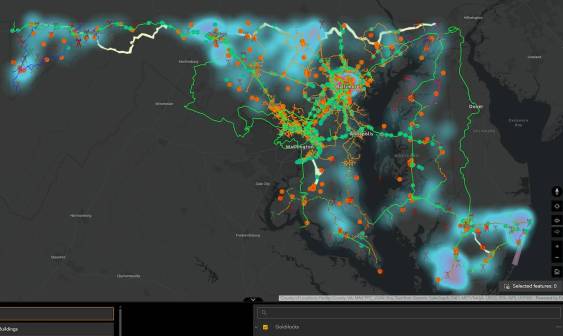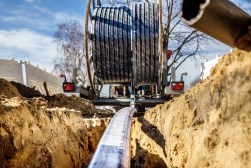Report: Municipal broadband environment has gotten ‘significantly worse’

There’s a nationwide increase in the number of regions offering broadband service through locally-owned infrastructure, but some states are making it harder than ever for towns and cities to start their own broadband networks. The roadblocks, typically led by state legislators, have gotten “significantly worse” in 2019, one policy expert told StateScoop.
Research published Wednesday by BroadbandNow.com, a website that ranks internet service providers, details the 26 states that have banned or enacted policy roadblocks inhibiting municipal broadband or internet cooperatives. Last year, the list included just 20 states, but this year, six new states — California, Wyoming, Iowa, Connecticut, Massachusetts and Oregon — join the roundup for enacting new barriers such as direct sale prohibitions or “excessive taxes.”
Despite more barriers cropping up, municipal broadband is seeing growth nationally. There are now more than 500 towns nationwide with municipal broadband and 300 that provide service through cooperatives. Tyler Cooper, a consumer policy expert at BroadbandNow told StateScoop the common thread in the states with barriers is a lack of grassroots organizing around municipal broadband.
“At both the state and private industry level, there’s some degree of ‘if the public isn’t paying attention to this, we can do what we want,'” Cooper told StateScoop.
Municipal broadband can serve a community in multiple forms, as a lone utility or as an additional service from an electric co-op. Cities and rural areas alike can take advantage of a locally-run internet service, Cooper said, though there’s an obvious added benefit to laying down fiber for rural communities that otherwise lack competition or adequate service.
“In areas that people are aware and where they understand the benefits to their communities, it’s extremely popular. It’s being pushed forward regardless of the laws and roadblocks,” Cooper said. “But in other areas where its not, if there’s no community awareness at the local level, it’s really up to state legislature and municipalities to educate their communities, and that’s where the breakdown is currently happening.”
The most common type of barrier is what BroadbandNow calls “bureaucratic barriers,” which don’t outright ban utility-based internet providers, but make it difficult to create or maintain them. Towns seeking a municipal broadband option in Michigan, for example, must seek bids from private providers before creating their own network and adhere to the same rules that they impose on those private companies. That could cancel some of the benefits of the public internet service in the first place, the report says. Tennessee requires municipal broadband providers to hold town hearings and gather votes to secure public approval, requirements that private competitors are not beholden to.
These preemption tactics are not a technology issue, Cooper said, but are ingrained in political division.
“The opposition to municipal broadband has increased a lot at the state level,” he said. “The private industry has some problems with it obviously and has tried to slow things down in certain communities, but also state legislators in general — some of them — view municipal broadband as unneeded competition to private investment.”






